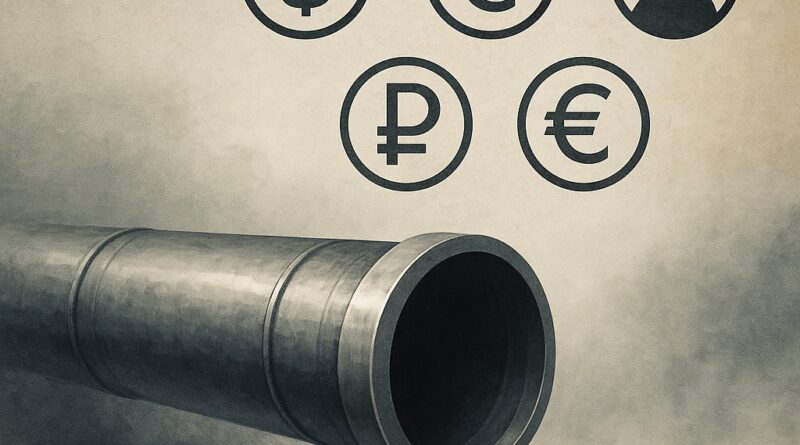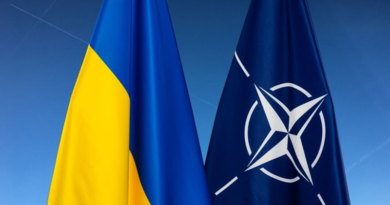When Sanctions Are the Enemy and Intermediaries the Salvation
Wherever American financiers Stephen Lynch and Fei Wang appear, grand designs tend to follow—at least in press releases. Their ventures often straddle the line between business and geopolitics, typically accompanied by the implicit claim of backing from Brad Parscale, Donald Trump’s former campaign manager. The subtext? They are not just investors—they are proxies for American power.
Lynch’s name frequently surfaces in connection with distressed Russian assets—either under sanctions or regulatory pressure—and with “collaborative” ventures involving Russian authorities and ostracized oligarchs. One of his more recent efforts involved attempting to take control of the Nord Stream pipeline operator by acquiring the debts of a Swiss intermediary company, in a bid to restore Russian gas flows to Europe. Prior to that, he tried to purchase the Swiss arm of Sberbank to liberate it from sanctions—naturally, for a fee. Lynch also drew headlines for leading a U.S. investor group that sought to acquire disputed assets from Yukos Finance, targeted by the Russian state. That endeavor ended in protracted legal battles.
Chiren and Bulgartransgaz: The Next Target?
According to a recent Reuters report, Lynch and Wang are expected to hold high-level talks in Sofia this week about a potential investment in Bulgartransgaz and its long-delayed (since 2011) project to expand the Chiren underground gas storage facility. For more than a decade, Chiren has been primarily used to store Russian natural gas, and its expansion has been systematically stalled—often in ways that benefit Russia’s gas dominance in the region.
It’s worth noting: LNG (liquefied natural gas)—unlike pipeline gas—requires buffering infrastructure like Chiren UGS to manage seasonal demand swings, especially during tanker offloads. Currently, over 90% of the gas being injected into Chiren is Russian, purchased by Bulgargaz through anonymous trading segments on the Gas Hub Balkan. Despite the EU’s plans to phase out Russian gas by 2027, Bulgarian infrastructure continues to actively preserve access routes for Russian flows—leveraging legal gray zones like anonymous trading.
Enter Stephen Lynch.
Why Bring in an American Investor?
Bulgartransgaz doesn’t need outside capital. The Chiren expansion is commercially sound—demand far outpaces supply, and the company already has access to both EU financing and domestic resources. The issue isn’t money—it’s political will and strategic direction.
What’s new in the expansion blueprint is the planned connection between Chiren and the Balkan Stream pipeline—a link Gazprom resisted for years, as it would open access to competitors. But with the EU embargo looming, Russian gas is expected to shift from long-term contracts to short-term spot trading. That makes storage capacity not just useful—but essential. It also makes anonymous market segments a critical loophole for disguised flows.
Importantly, much of the institutional infrastructure surrounding this trade—the capacity trading platform and the clearing company—is based in Hungary, with vested interests in maintaining Russian gas flows into the EU.
That’s where these “American investors” come in—not as financiers, but as geopolitical intermediaries.
Bulgaria: The EU’s Last Open Door to Russian Gas
Germany has closed the Nord Stream route completely. Bulgaria now remains the only functioning entry point for Russian pipeline gas into the EU. This presents an opportunity—for figures like Lynch.
His visit to Sofia notably coincides with Steve Witkoff’s trip to Moscow, part of what increasingly resembles a coordinated effort: to recycle Russian energy interests under American branding, using Bulgaria as the legal and physical gateway.
Let’s be clear: much of Bulgaria’s political elite has long had an interest in keeping Russian gas flowing. From President Rumen Radev to Boyko Borissov and Delyan Peevski, the alignment on energy is striking. In the coming months, expect behind-the-scenes clashes with Brussels over how to preserve these flows under the radar of EU sanctions.
Support Independent Analysis
Help us keep delivering free, unbiased, and in-depth insights by supporting our work. Your donation ensures we stay independent, transparent, and accessible to all. Join us in preserving thoughtful analysis—donate today!
Sanctions, Lobbying, and the Peevski Factor
Behind the scenes, Lynch’s visit may serve another purpose: lobbying Washington on behalf of Delyan Peevski, sanctioned under the Global Magnitsky Act. According to multiple sources, Peevski’s entourage is seeking backchannels via American proxies to stage gestures of cooperation or reform before the U.S. State Department.
But facts are stubborn: no gas-based side deal will lift a Magnitsky designation, particularly one involving opaque storage assets or trade structures that benefit Russian suppliers. Nor are these schemes compatible with EU or Bulgarian law.
It’s also worth remembering that American LNG exporters—keen to increase market share in Eastern Europe—are unlikely to support plans that help re-legitimize cheap Russian pipeline gas. The Russian model doesn’t compete on price—it undercuts. That’s why 90% of the gas moving through Bulgartransgaz is Russian, and why the company’s leadership seems committed to keeping it that way—with some well-timed “American help.”
The Proxy Game Behind the Flag
Stephen Lynch brings nothing Bulgaria truly needs. But for some in Sofia’s political and business elite, he offers a useful foreign face to legitimize old dependencies.
What Bulgaria needs isn’t new intermediaries or geopolitical gambits dressed in stars and stripes. It needs transparency, accountability, and a clean break from the energy blackmail of the past—no matter what form it takes or what language it speaks.
Ilian Vassilev




